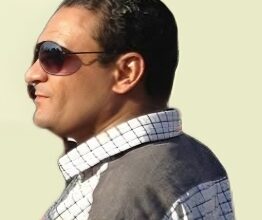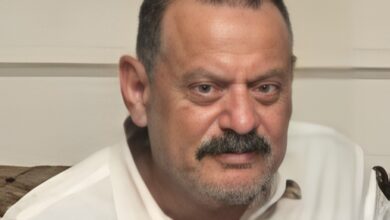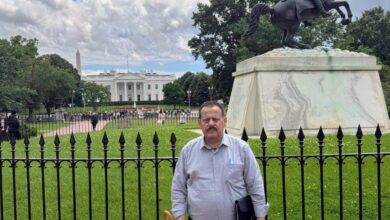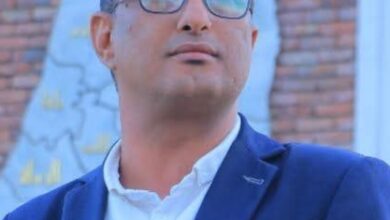Beyond the Curriculum

Yemen mp
Ahmed Saif Hashed
In my second year of high school, ten dinars were allocated monthly as assistance for the children of the North (the National Front). I eagerly awaited this support at the end of each month, using it to buy some booklets. Back then, books were subsidized by the state, allowing us to purchase them at very low prices. I would also spend some of this money to satisfy my hunger each night by buying biscuits and tea from Mohammed Haidara, who owned a small shop just inside the school gate.
The combination of tea and biscuits was a delightful meal that alleviated the pangs of hunger, turning our evenings into a shared experience of camaraderie as we faced our hunger together. Even to this day, I sometimes crave that simple treat, recalling those long-gone days. My friend Nabeel Al-Hossam, when he feels hungry or needs to bolster his resolve against hunger, often offers me some biscuits while I feign indifference, my longing for them surging within me.
The humble sesame seed still evokes a sense of nostalgia for the hunger endured by those who carry their burdens with gracious spirits, regardless of how heavy the loads may be. How beautiful were the poor souls I knew—so rich in spirit, noble, and kind to one another. Their camaraderie was a joy, as they held their heads high, refusing to succumb to despair and submission. They faced hunger with the pride that was inherent to them, their dignity reaching for the skies. They resisted humiliation and degradation with an unparalleled dedication, showing the courage of those who have nothing left to lose.
* * *
At the “Proletariat” school, I had a small radio through which I followed the news at night, when the sounds were quieter and more serene. I was eager to listen to the news broadcast from “Monte Carlo” at eight in the evening, which lasted half an hour. After that, I would continue to follow the program until nine o’clock, when I switched to the BBC news from London, followed by a segment featuring snippets from various newspapers. I would not stop until I heard the program “Politics Between the Questioner and the Respondent,” which concluded precisely at ten in the evening.
I spent two uninterrupted hours each day immersed in news, reports, and political discourse. Whenever a significant event arose, I would extend my listening time, tuning into various stations that focused on that issue or event. I cannot recall a single night passing without dedicating at least two hours to the radio, fueled by a passion for political and intellectual engagement.
This routine became an essential part of my daily life during my high school years at the “Proletariat” school. Following the news made me feel connected to the pulse of life and the unfolding events, highlighting the importance of public affairs in our lives and the global landscape. I remained vigilant against misleading or false information, and the diversity of sources and comparisons among them helped us discern truth from falsehood.
* * *
I yearned for knowledge and eagerly sought it out, reading newspapers whenever I could, along with some books—even those that were difficult for my humble level of understanding. I made an effort to comprehend them, treating them as if they were part of my curriculum.
I remember in my second year of high school, one of the teachers from the teacher’s college confronted me simply for being near the school gate, reading Engels’s The Origin of the Family. He reprimanded me, arguing that such material would be challenging even for university graduates, and that my reading distracted from my studies.
It was clear that this teacher had shed much of the rigid ideology that often binds educators, and I suspected his roots lay in India or Pakistan, based on his features and appearance. As for me, I respected knowledge from any source or avenue it came.
This rebuke did not deter me from reading beyond the school curriculum; rather, it compelled me to explore even more outside the prescribed texts, without negatively impacting my commitment to my studies, which I prioritized. However, my suffering and thirst for knowledge sometimes drove me to read beyond the syllabus. Our esteemed Syrian teacher, Hassan Bashmaf, who was well-versed in Arabic literature and language, spoke eloquently in class and beyond. His proficiency in teaching made Arabic literature appear beautiful and deserving of deeper exploration, inspiring us to delve further into reading and learning outside the academic confines. I also recall moments of rebellion against the established norms and expectations.
I recall immersing myself in ancient poetry, exploring the verses of Antarah, Al Mu’allaqat, and the works of the rebellious poets, alongside literature from the medieval period, which included delightful poems and engaging commentaries. I would meticulously read the words and their meanings in the footnotes at the bottom of the page, striving to grasp the essence of the poems and the lines that eluded my understanding.
Overall, reading beyond the prescribed curriculum was fundamental to expanding my intellectual horizons and later excelling in my studies, allowing me to break free from the shadows of academic weaknesses I sometimes felt.
* * *
In the realm of music, I enjoyed listening to the songs of Taha Farea and Hassan Ata, the latter of whom served as the dean of the teacher’s college at my school. I was also fond of the tunes of artists like Abdulbaset and Ayoub Tarash Absi. However, my classmate Abdulhakim, hailing from “Mabq” region, was likely addicted to the music of Abdelhalim Hafez and Umm Kulthom.
I found his taste puzzling, as I struggled to comprehend the lyrics and found the melodies unappealing; their rhythms irritated me. I often marveled at the preferences of people who adored the very art that I found difficult to appreciate, including my uncle Farid, who loved the songs of Fairouz and Umm Kulthum.
Yet, over time, I discovered myself drawn to some of Abdelhalim’s and Umm Kulthom’s songs. I particularly cherished the song “La Takdhibi,” Do not be angry performed by Abdelhalim Hafez, which I sang along with him, harmonizing my voice to the echoes of a failed love I once experienced. My classmate Abdul Hakim explained the lyrics to me and recited them until I memorized them, especially the lines that resonated deeply within me:
Do not lie, for I have seen you together… So cease your weeping, for I have grown weary of tears.
How trivial is the daring tear when it flows… from a deceitful eye that denies and claims.
I have seen you together… I have heard you together… Your eyes in his, on his lips, in his hands, in his feet…
Until it continues:
What can I say to the tears I shed longing for you? What can I say to the ribs I tore apart in fear for you? Should I say it was easy? Should I say you betrayed me…? If I utter it, I will quench my thirst… Oh, my woe.
No, I shall not say it; you must say…
Do not be ashamed… do not be frightened of me, for I am no rebel… You saved me from the falsehood of my dreams and the betrayal of my feelings.
For I saw you were a chain I vowed never to break… yet I broke it. And I saw you were a sin I asked God not to forgive… yet I forgave it.
* * *






